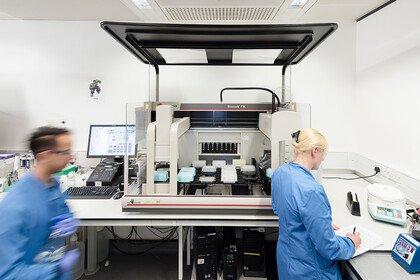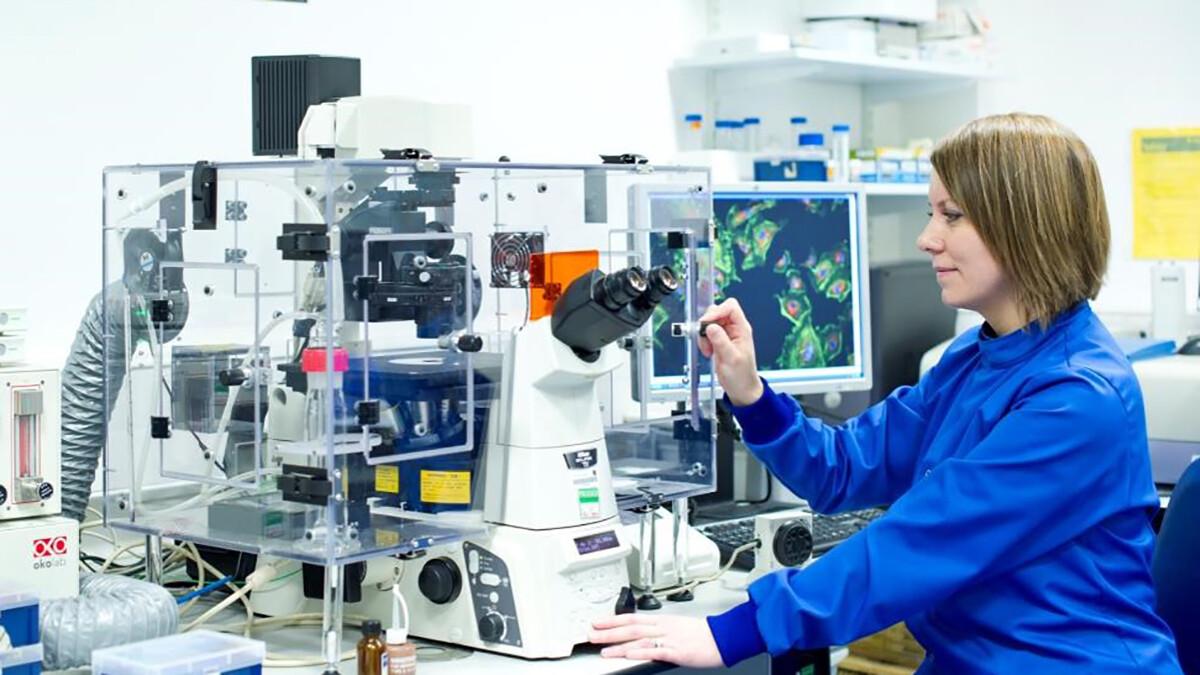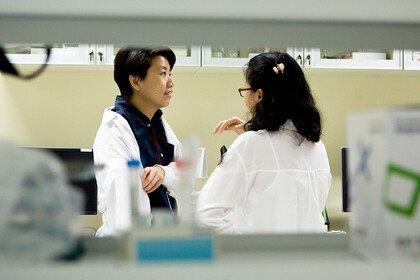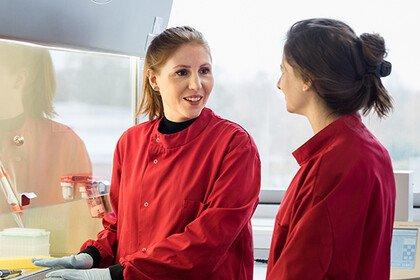
More than 'just a technician': why we need to recognise everyone in the research team
I started out as a junior technician two decades ago and though I loved it, I quickly recognised that the culture we worked in needed to change. The results of Wellcome’s survey into experiences of research culture don’t surprise me – but by working collectively things can improve.

For a long time there’s been a phrase, 'just a technician'. My colleagues across the sector and I have heard it far too much – to the point where technicians often say or believe it about themselves. Technicians have experienced invisibility and in the past, those with postgraduate qualifications have even been referred to as 'qualified failures'. But we’re essential to research and innovation, and our academic, research and student colleagues cannot operate without us.
With many others, I’ve been working to build a better culture for technicians. Most recently this has been through my roles at the University of Nottingham, where I’m Director of Technical Skills and Strategy, and at the Science Council, where I’m fortunate to be in a national position to try and effect change.
Research is a team sport
61% of people in Wellcome’s survey said that their working environment promoted a collaborative culture. That’s lower than I’d have thought, and important to improve, as an increasing focus on team science in the past couple of years has been really good for technicians.
Despite their contributions to research, practice has been patchy in terms of naming technicians on papers or research grants. Technicians have traditionally operated in a historic hierarchy – with academics at the top.
There are countless examples from across the sector where technicians have been made to feel second class. I know of one colleague, an expert technical anatomist who was once given a bucket and sponge by his principal investigator and told to go and wash his car.
I myself was told by a postdoctoral researcher that where they came from 'they wouldn’t even wipe their shoes on the technical staff', and I’ve been told to 'get back in my box' on more than one occasion.
But thankfully things are changing. In a first for me, and with fantastic support from my institution, a funding body have recently allowed me to be a principal investigator on a research grant. I’ve been fortunate to work with very supportive PIs and like many technical colleagues, I’ve contributed to and authored research papers.
It’s fantastic to see that we’re starting to see greater recognition of our contributions, with some institutions putting in place 'Fair Attribution' policies specifically to ensure that technicians are given appropriate recognition on research outputs. Funders are seeing that for some funding calls, such as those focused on equipment, it is entirely appropriate for a technical colleague to be an investigator or co-applicant.
A commitment to greater recognition
Many of the examples above have been in response to the Technician Commitment – a sector wide initiative which launched in 2017.
For a number of years I’ve worked closely with the Gatsby Foundation – particularly on their Technicians Make it Happen campaign, which aims to shine a light on the many technical roles we have in the UK. Together, and through my role at the Science Council, we developed the idea of a sector commitment to technicians with four key pillars: visibility, recognition, career development and sustainability.
Two years on, the Technician Commitment now stands at 88 institutional signatories. We’ve developed a thriving and energetic community of Technician Commitment leads across the sector. Together, we’re enabling a better culture for technicians and ensuring their careers are developed, supported and respected.
Another example of progress is the development of new career routes. Unlike academic colleagues who have a well-defined career path, technicians can experience limited career options, even though they are skilled professionals with a wealth of expertise. At the University of Nottingham, and at least three other UK universities, career pathways have been created or are in development to ensure that technical colleagues can reach professorial equivalence. Crucially, technicians can reach this level either via a management or a specialist knowledge route.
Wellcome’s survey showed that only 29% of researchers feel secure pursuing a research career. I can see this – like postdoctoral researchers, many technicians are on fixed term contracts and much more could be done to improve stability. For example, many institutions don’t always cost technicians appropriately on grants. Funders know that they need technicians for research to be successful, and we know it’s possible to fund permanent roles backed up with research funding. We’re working with funders to improve this.
Achieving change has been a collective effort
I’m proud to say that the sector is finally starting to celebrate technicians and ensure recognition for the technical community. There is still much to do, but it’s movement in the right direction.
Learned societies and professional bodies are recognising technicians as key members of the community and giving accolades for best practice. We’ve worked with Times Higher Education to create a THE award category for 'Outstanding Technician of the Year'. In 2020, the Institute of Physics is awarding a number of honorary fellowships for technicians – and we’re even seeing technicians put forward for honorary degrees and royal honours.
So many technicians and colleagues across the sector have worked hard to get us to this point. The Technician Commitment has started to effect positive change and I’m incredibly proud of what we’ve collectively achieved so far. I’m excited about what will happen as others join in and share their ideas with Wellcome about how to make research culture better for all


